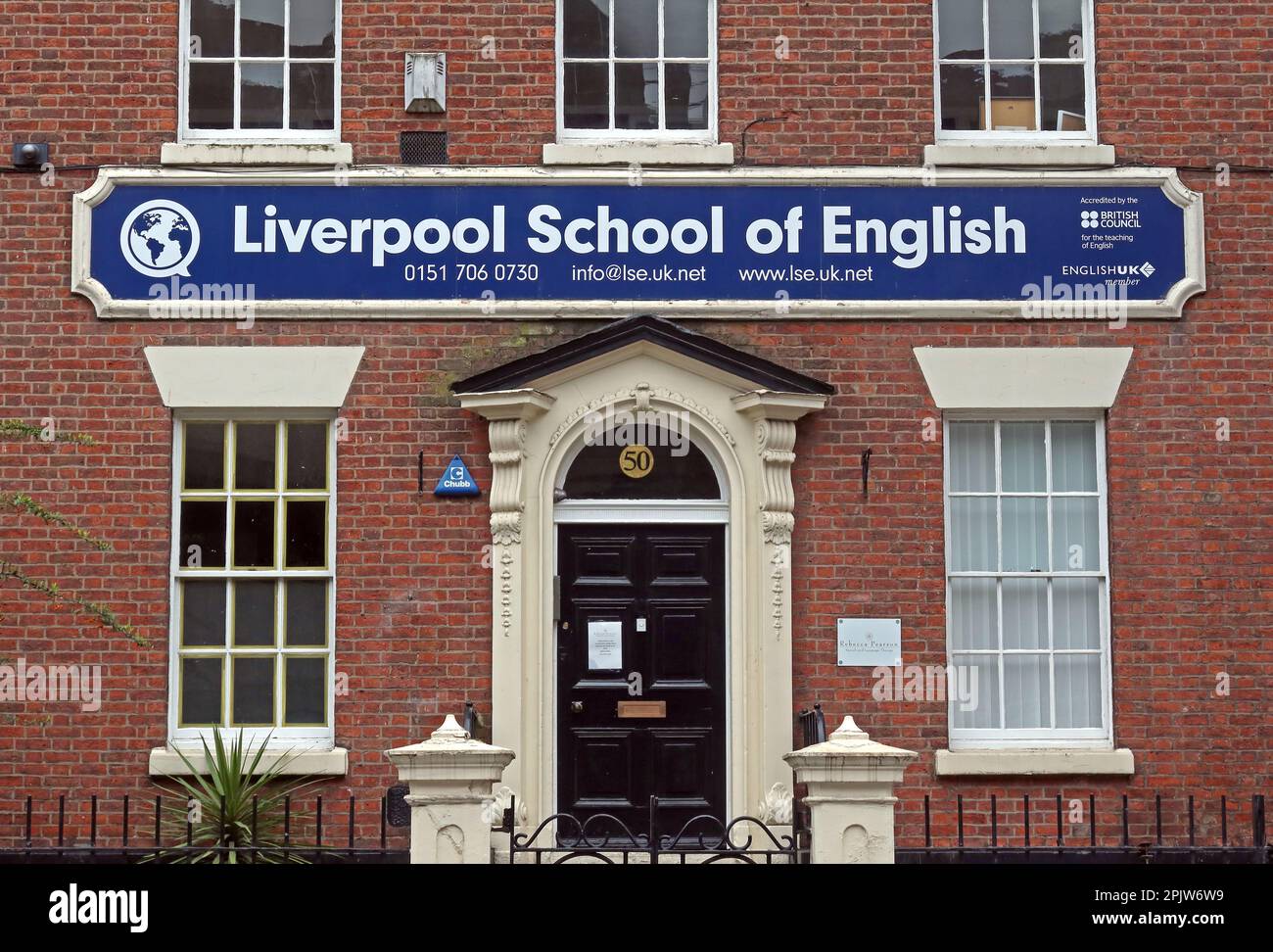LSE Liverpool School Of English, 50-54 Mount Pleasant, Liverpool, Merseyside, England, UK, L3 5SD

Image details
Contributor:
Tony Smith / Alamy Stock PhotoImage ID:
2PJW6W9File size:
56.1 MB (2.6 MB Compressed download)Releases:
Model - no | Property - noDo I need a release?Dimensions:
5376 x 3648 px | 45.5 x 30.9 cm | 17.9 x 12.2 inches | 300dpiDate taken:
1 April 2023Location:
50-54 Mount Pleasant, Liverpool, Merseyside, England, UK, L3 5SDMore information:
Liverpool English (Scouse) Introduction The term scouse refers to Liverpool English. An inhabitant of Liverpool is a Liverpudlian or Scouse(r) The Scouse accent is well-know throughout Britain and the world mainly due to the Beatles and other Liverool pop groups and singers from the 60s. Nowadays, among some people it not considered to be among the nicest of English accents. Only the Birmingham accent is considered uglier. Scouse has a velarized or "adenoidal" quality that gives it a sound peculiar to this accent. Of course, for the people of Liverpool, Scouse is an integral part of their identity and well loved. Vowels Liverpool is a Northern accent and therefore the FOOT and STRUT words are both pronounced with a /ʊ/. One of the most distinguishable characteristics of Liverpool English is the SQUARE diphthong . Compare Liverpool /ɛː/ with RP /eə/. You can hear it when George Harrison pronounces the word declare in the song Taxman on the Revolver album. Words like book and cook are pronounced [buːk, kuːk] instead of the RP /bʊk, kʊk/. Consonants Sometimes initial /ð/ is pronounced as a [d̪] just like in some varieties of American English. Words like ring and bring are pronounced /ŋg/, that is, with a final /g/ sound. Some stops are pronounced like affricates. For example, dad /dzad/, king /kxɪŋg/. The /t/ in certain lexical items with a short preceding vowel such as matter, what, but, get may be realized as [ɾ]. Examples: Get a job! [geɾədʒɒb], what's the matter [wɒtsðəmæɾə], what a day [wɒɾədei]. This is generally limited to certain lexical items